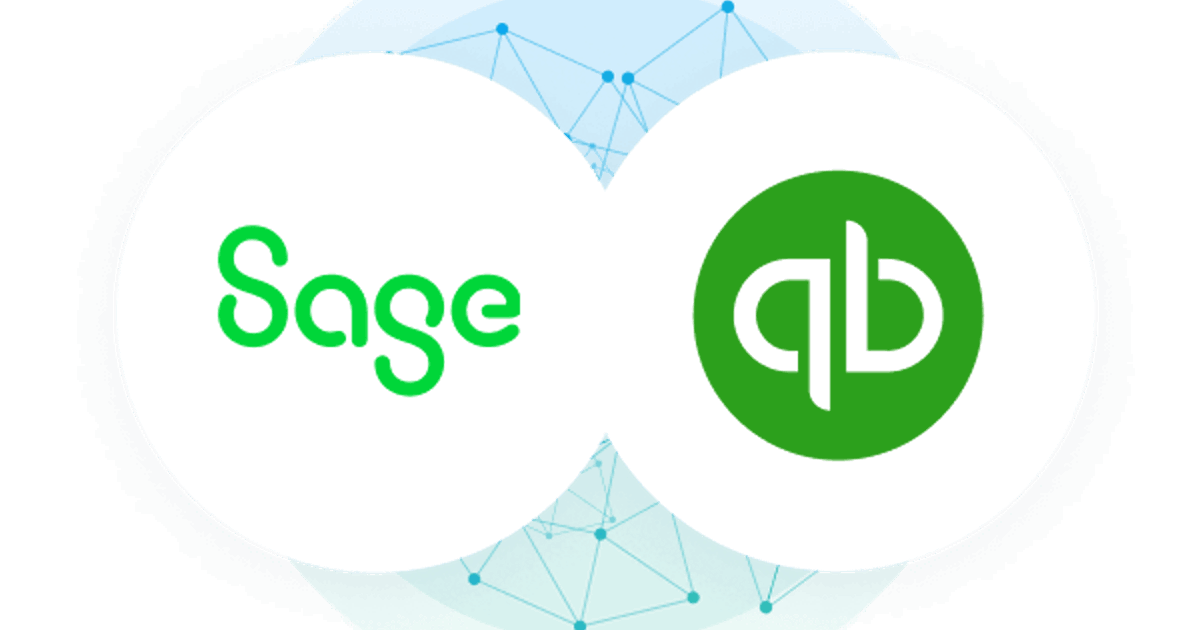Comparing Sage 50 and QuickBooks: Which One is Better?|2025
Comparing Sage 50 and QuickBooks: Which one is better? Discover the differences, features, and benefits to choose the right accounting software for your business.
Accounting software is essential for businesses to manage financial transactions, generate reports, and ensure compliance with tax regulations. Among the most popular accounting software solutions are Sage 50 and QuickBooks. Both offer robust features but cater to different business needs. This paper provides a comprehensive comparison of Sage 50 and QuickBooks, analyzing their features, usability, pricing, integrations, customer support, and suitability for various business types. The goal is to determine which software is the better option for businesses.
Overview of Sage 50
Sage 50, formerly known as Peachtree Accounting, is a desktop-based accounting software designed for small to medium-sized businesses. It provides advanced accounting functionalities, including inventory management, job costing, and audit tracking. Sage 50 is known for its strong security and industry-specific features, making it a reliable choice for businesses with complex accounting needs.
Overview of QuickBooks
QuickBooks, developed by Intuit, is one of the most widely used accounting software solutions worldwide. It is available in both desktop and cloud-based versions. QuickBooks offers user-friendly features such as automated bookkeeping, invoicing, payroll, and tax preparation, making it a favorite among small businesses and freelancers. The software is available in multiple versions, including QuickBooks Online, QuickBooks Desktop, QuickBooks Enterprise, and QuickBooks Self-Employed.
Feature Comparison
1. Ease of Use
- Sage 50: While Sage 50 offers a powerful suite of accounting tools, it has a steeper learning curve compared to QuickBooks. Its interface is more complex, requiring accounting knowledge to use effectively.
- QuickBooks: QuickBooks is known for its user-friendly interface. Even users with minimal accounting experience can navigate the platform easily, making it an ideal choice for small businesses and startups.
Winner: QuickBooks (More intuitive and beginner-friendly)
2. Accounting Features
| Feature | Sage 50 | QuickBooks |
|---|---|---|
| Invoicing | Yes | Yes |
| Payroll | Yes (with add-ons) | Yes (with add-ons) |
| Tax Reporting | Yes | Yes |
| Inventory | Advanced tracking | Basic tracking (Online) |
| Job Costing | Yes | Yes |
| Multi-Currency | Yes | Yes |
| Audit Trail | Yes | Limited |
| Budgeting | Yes | Yes |
Winner: Sage 50 (Offers more advanced features, especially for inventory and audit tracking)
3. Pricing
- Sage 50: Pricing for Sage 50 starts at $57 per month for the Pro version and can go up significantly depending on the features required. It is generally more expensive than QuickBooks.
- QuickBooks: QuickBooks Online starts at $30 per month and offers several pricing tiers depending on the business’s needs. QuickBooks Desktop versions have one-time purchase options, but the cost of add-ons can increase expenses.
Winner: QuickBooks (More affordable and flexible pricing options)
4. Integration with Third-Party Apps
- Sage 50: Integrates with Microsoft 365, Sage Payroll, and a limited number of third-party applications.
- QuickBooks: Has a vast marketplace of third-party app integrations, including CRM tools, payment processors, e-commerce platforms, and inventory management solutions.
Winner: QuickBooks (More third-party integrations available)
5. Cloud vs. Desktop Accessibility
- Sage 50: Primarily desktop-based, but cloud hosting is available at an additional cost.
- QuickBooks: Offers both cloud-based and desktop versions, with QuickBooks Online providing full cloud functionality.
Winner: QuickBooks (Better cloud accessibility)
6. Customer Support
- Sage 50: Provides customer support via phone and chat but is known for slower response times.
- QuickBooks: Offers 24/7 customer support, live chat, community forums, and extensive knowledge base articles.
Winner: QuickBooks (More accessible and faster support response)
7. Security Features
- Sage 50: Strong security measures with an audit trail and user role customization.
- QuickBooks: Uses bank-level encryption but has limited audit trail capabilities compared to Sage 50.
Winner: Sage 50 (Better security features)
Best Fit for Different Business Types
| Business Type | Best Choice | Reasoning |
| Freelancers & Sole Proprietors | QuickBooks | Easy to use, affordable, cloud-based |
| Small Businesses | QuickBooks | Scalable, integrations, good customer support |
| Medium-Sized Businesses | Sage 50 | Advanced features, better security |
| Large Enterprises | Sage 50 | Robust reporting, job costing, audit trails |
| Retail & Inventory-Based | Sage 50 | Strong inventory management |
| Service-Based Businesses | QuickBooks | Simple invoicing and time-tracking tools |
Conclusion
Both Sage 50 and QuickBooks have their strengths and weaknesses. QuickBooks is ideal for small businesses, freelancers, and startups due to its affordability, ease of use, and extensive third-party integrations. Sage 50, on the other hand, is better suited for medium to large businesses that require advanced inventory management, job costing, and security features.
If your business needs scalability, cloud accessibility, and integrations, QuickBooks is the better option. However, if you require advanced accounting features, stronger security, and a desktop-based solution, Sage 50 is the better choice.
Ultimately, the best choice depends on your business size, industry, and accounting needs.
Needs help with similar assignment?
We are available 24x7 to deliver the best services and assignment ready within 3-4 hours? Order a custom-written, plagiarism-free paper





